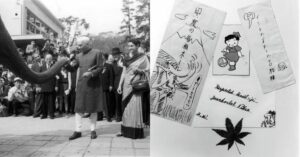Did You Know These 17 Common English Words Were Borrowed from Hindi?
English speakers may know more Hindi than they think as English has a great many Hindi loan-words. Check out 17 of them here you probably didn't know about !

As a language which is continuously evolving, English has borrowed a multitude of words from Hindi. Cultural footprints of the past, these 17 words have deep Indian roots and have entered English through various routes, with most being absorbed during the days of British Raj. Here’s a look at this act of ‘borrowing’ which enriched English with many new words, courtesy of Hindi and India.
Verandah

Photo Source
Since there were no verandahs in England because of its cold weather, the word never existed in English before the British interaction with India, where almost every house had one, usually for the family to enjoy the breeze on hot days. Interestingly, the word veranda itself came to Hindi via the Portuguese.
2. Jungle

Photo Source
Derived from the Hindi word jangal meaning a wild wasteland, it was used by English settlers in India to refer to any wild, untended or uncultivated land, including sparsely wooded scrub landscapes and tangled forest landscapes, overgrown with dense vegetation.
3. Bandana

Photo Source
The English fashion dictionary borrowed the word bandana from two Hindi words – badhnu, which describes the process of tie-and-dye through which large handkerchiefs with vibrant, distinctive designs were made, and bandhana meaning to tie something up.
4. Dinghy

Photo Source
The English word dinghy was derived from the Hindi word dingi or dingiya that was used for small rowing boats that travelled through the sheltered waters of Indian rivers and along the Indian coasts to fish and to transport passengers and freight in the olden days.
5. Chit
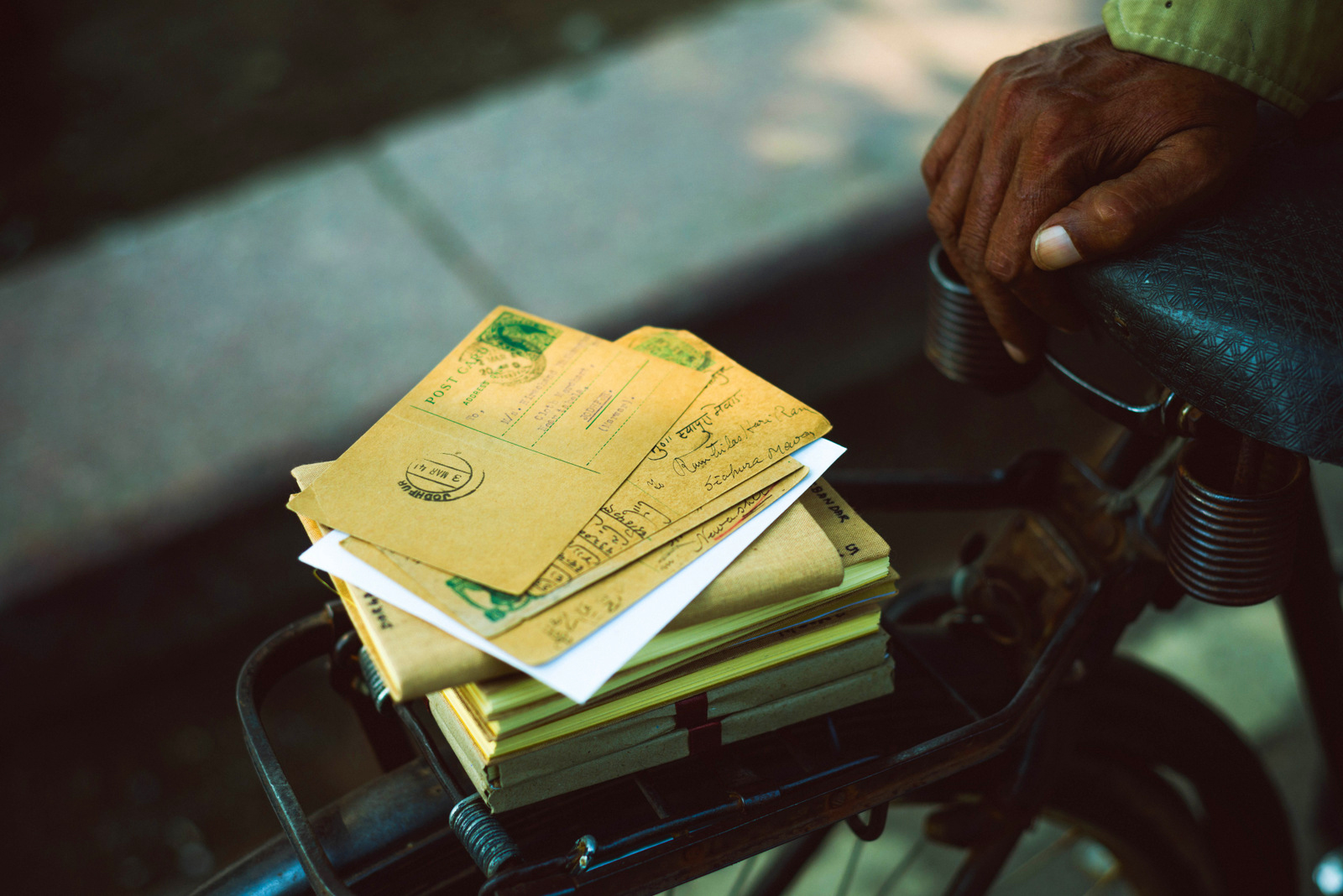
Photo Source
Remember the chits you used to take to your exam halls? Chit has its origins in chitthi, a Hindi word for a letter or post. In olden days, letters were a way to practice critical reading, self-expressive writing and also exchange ideas with like-minded others in India. No wonder this common Hindi word was assimilated into the English language.
6. Pyjama
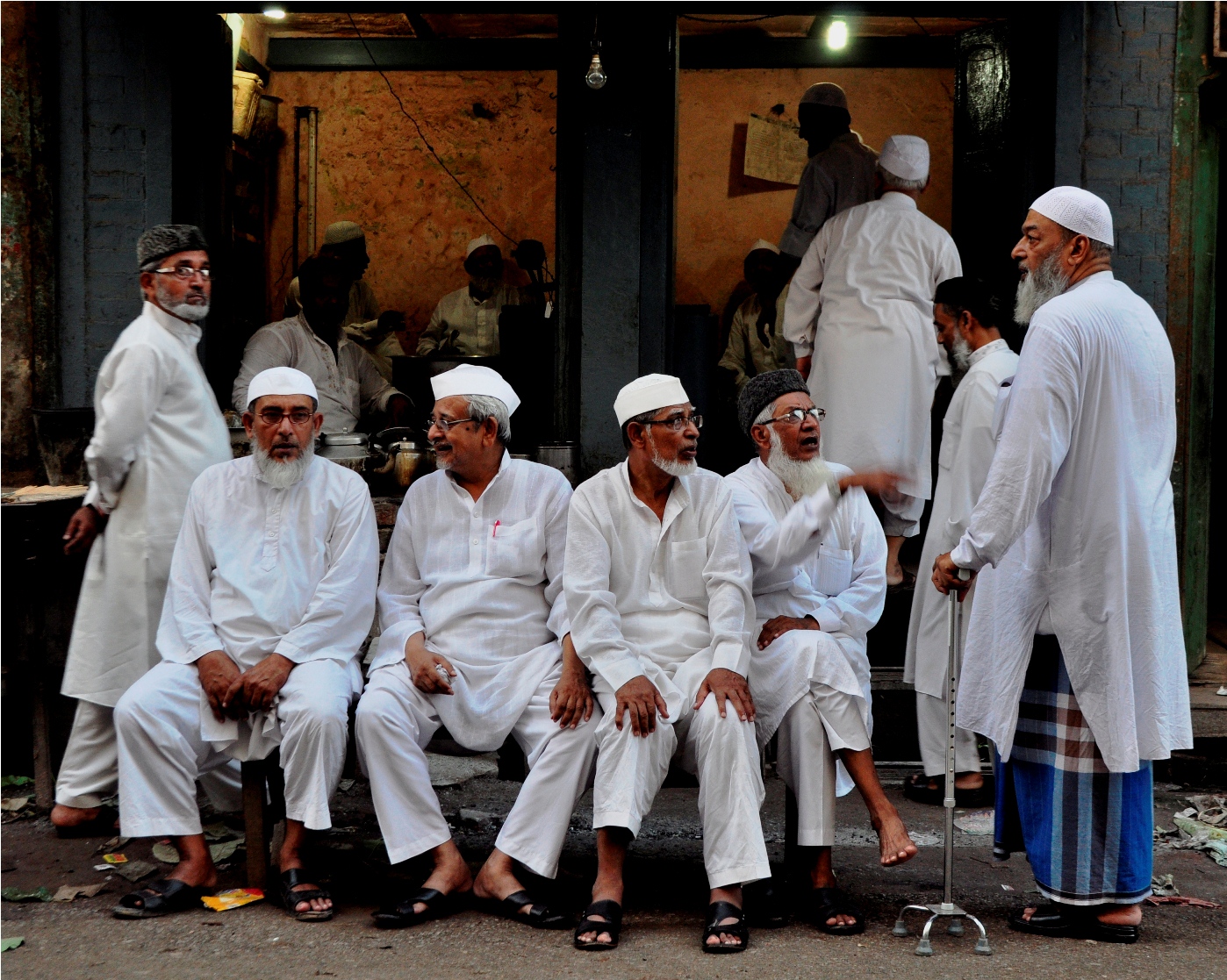
Photo Source
Denoting loose fitting sleeping clothes worn by early European settlers, the English word pyjama was taken from the Hindi word payajama. Broken down, “pay” means leg and “jama” means clothing, thus referring to a pair of comfortable, loose and lightweight trousers fitted with drawstring waistbands.
7. Juggernaut
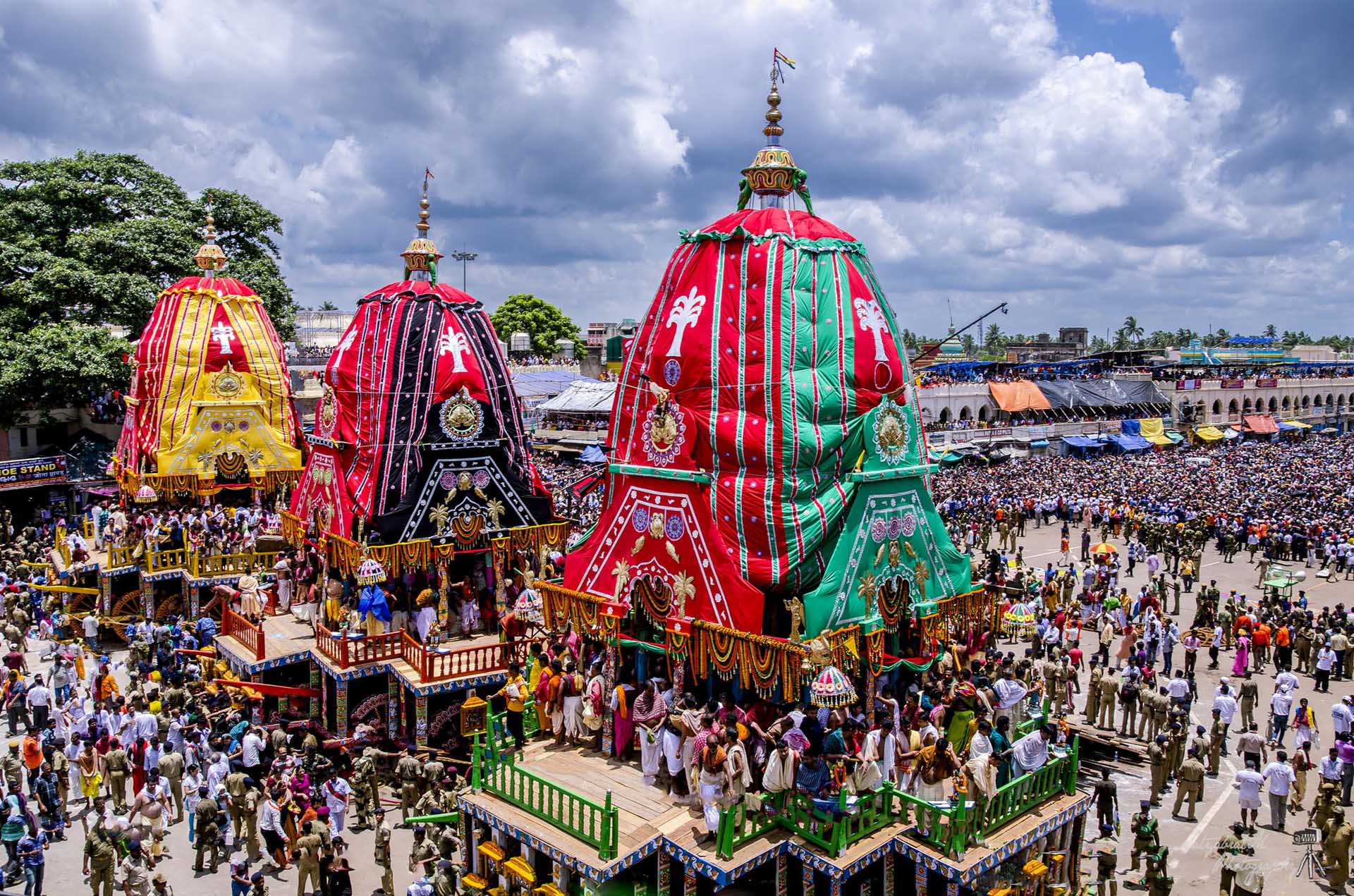
Photo Source
Defined as something that is very large and unstoppable, this word has its roots in the fascinating Jagannath yatra – a religious procession in Puri in Orissa where a giant carriage carries the image of Lord Jagannath, and which devotees are said to have sometimes thrown themselves under. The British also use it to refer to very large trucks.
8. Cashmere

Photo Source
Cashmere, meaning the fabric spun from the fine downy wool of the cashmere goat, is a word that travelled to Britain via Hindi. The word cashmere is an old spelling of Kashmir as pronounced in Hindi, the state where these shaggy goats were once found in abundance.
9. Thug
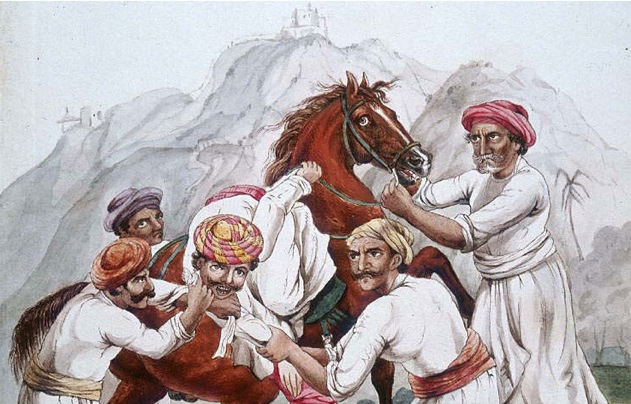
Photo Source
A descendent of the Hindi word thag, meaning a thief or a swindler, it entered the English language early in the 19th century. The thags were organized bands of notorious thieves, robbers, and conmen who would travel across India, befriending travellers on the way before looting and killing them.
10. Chutney

Photo Source
Essentially a Hindi word – chatṭni means ‘to lick’and denotes a pickled condiment made from fruit, vinegar, spices and sugar. The word Chutney entered the English language in the 19th century when the British started exporting their favourite chutneys to their colonies in Australia and North America.
11. Bangles
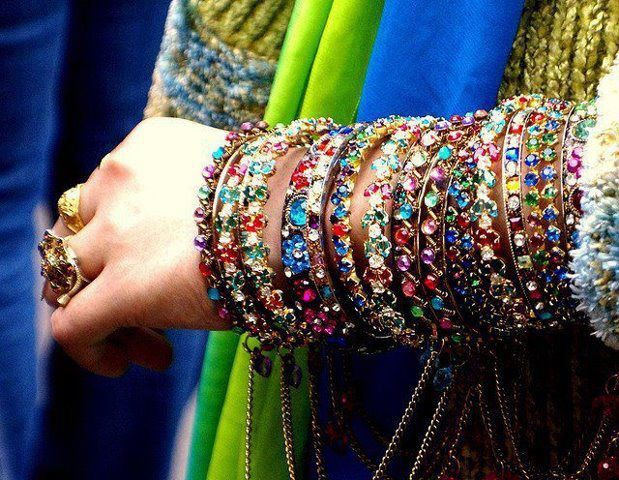
Photo Source
The word bangle in English means a rigid bracelet, usually made from metal, wood, or plastic and its introduction in English dates back to the late 18th century. It is derived from the Hindi word bangri which originally meant the colored glass ring ornaments worn on the wrist by Indian women .
12. Shampoo

Photo Source
Becoming a part of the English language in the 18th century, the word shampoo is derived from the Hindi word champo, meaning to squeeze, knead or massage. In Britain, the term and concept was introduced by a Bengali trader, Sheikh Deen Mohammad, who, along with his wife, opened a shampooing bath in Brighton in 1814.
13. Punch

Photo Source
The English word punch originates from ‘paanch’ in Hindi, meaning ‘five’, because of the five ingredients used in it – spirit/soda, sugar, lemon, water and tea/spices. The drink was brought to England from India by the sailors and employees of the East India Company in the early seventeenth century.
14. Cot
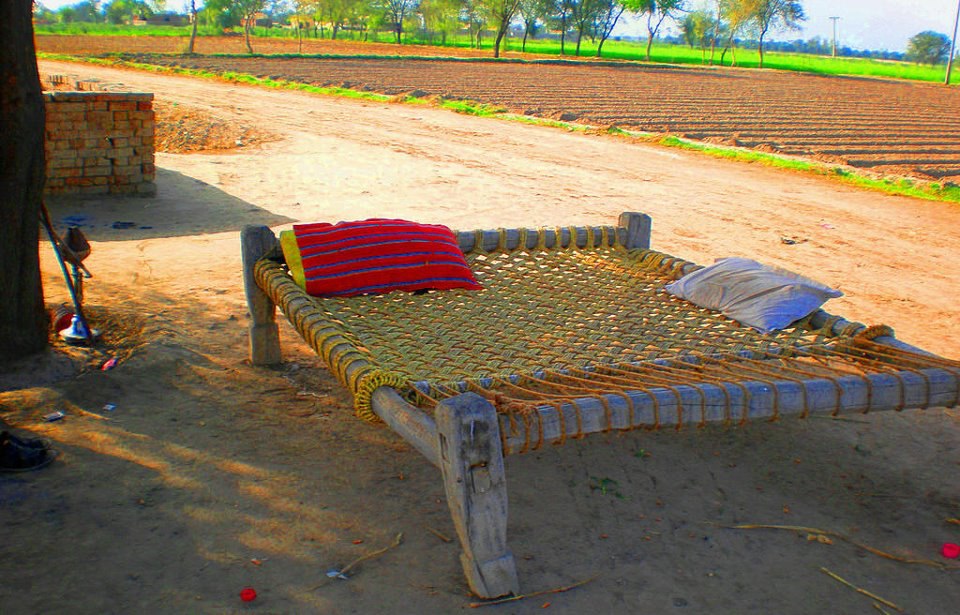
Photo Source
The English word for a light bedstead, cot, seems to have been derived from the words ‘khat’ and ‘khatwa’, Hindi words for bed. These ‘khats’ were traditionally made of jute and wood as the charpoys in Indian homes for people to relax in the open or sleep under the stars.
15. Loot

Photo Source
The word derives from the Hindi word ‘lut’, meaning to plunder or steal, which until the 18th century was hardly used outside north India. The English word loot came to mean to ransack somebody, to steal from someone, or whatever is stolen by the act of looting.
16. Bungalow
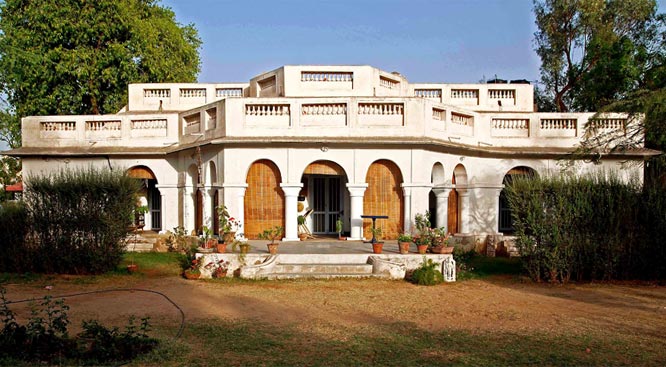
Photo Source
Used initially in 17th century Bengal to describe the single storey homes built for early British settlers, the English term bungalow originally derives from the Hindi word ‘bangla’ which meant houses constructed in the style of Bengal.
17. Cushy

Photo Source
Meaning relaxed, comfortable or easy in English, the word cushy stems from ‘khushi’, the Hindi term for ‘happiness’. It is said to have entered the English language through British Army slang around the time of the First World War.
Feature Photo Source
Like this story? Or have something to share? Write to us: [email protected], or connect with us on Facebook and Twitter (@thebetterindia).
This story made me
- 97
- 121
- 89
- 167
Tell Us More
We bring stories straight from the heart of India, to inspire millions and create a wave of impact. Our positive movement is growing bigger everyday, and we would love for you to join it.
Please contribute whatever you can, every little penny helps our team in bringing you more stories that support dreams and spread hope.







